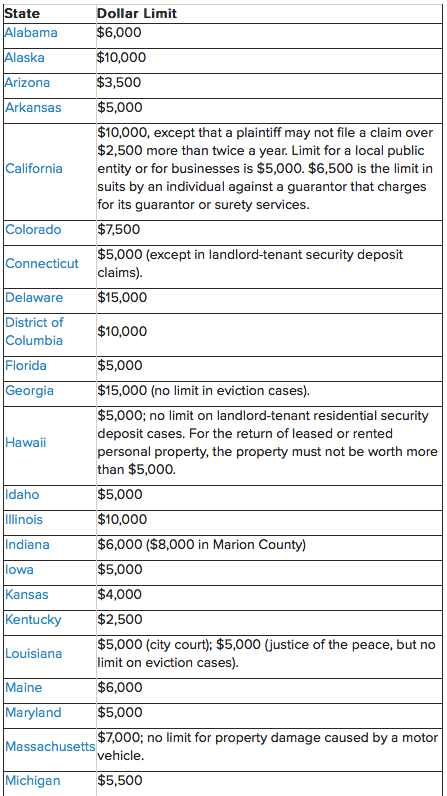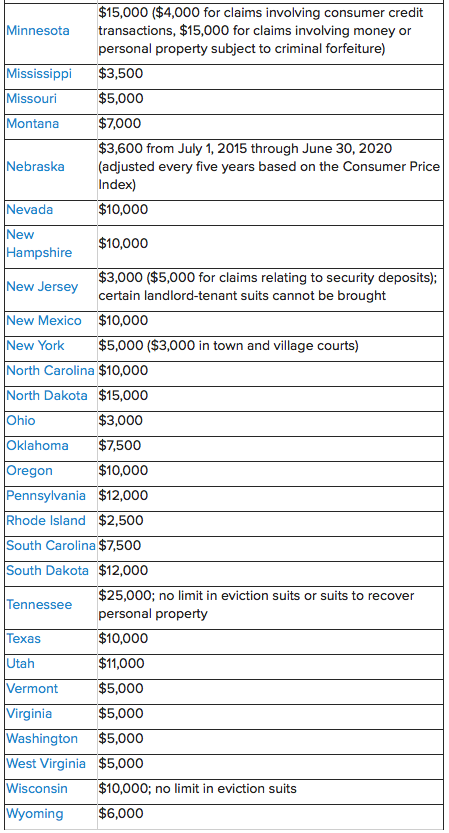Small claims court may make sense — but only if your losses are between $2,500 and $25,000, depending on where you file your claims.
When something goes wrong on an airline trip, the normal course of action is to petition the Department of Transportation (DOT) for redress. Passengers should file a complaint with DOT. No matter what the problem, file a complaint with DOT.
You can also file your grievance in small claims court against airlines if there is a failure to honor the airline contract of carriage.
Airline passengers do not have access to the state and local court systems. The federal courts have preempted state courts for all aviation issues. However, contract disputes can be settled through mediation, small claims court, or negotiation.
Here are some examples of situations when you might consider filing in small claims court against airlines:
- Your connecting flight is canceled and the airline arranges a van to get you to your destination. Instead of a one-hour flight, you have an uncomfortable four-hour ride. The airline denies your request for reimbursement of the difference between air and ground transportation.
- You buy a ticket for a seat in first class from a consolidator. He delivers a coach seat ticket and refuses to refund any of your payments.
- An airline cancels your flight and cannot get you out until the next day. They won’t put you up in a hotel, and you will spend $90 for a room. And your airline credit does not cover the room cost.
- An airline loses your luggage. You try unsuccessfully to negotiate a settlement. You can show that the value of the lost item was much more than the airline offers to pay.
Airline passengers may not get an acceptable resolution through DOT. They also may not get satisfaction in small claims courts or through negotiations with the airline. The only other legal course of action is to bring a suit against the airlines in federal courts. That can be an expensive proposition.
Here is a good overview of the rules for filing in small claims court against airlines. It is from the introduction to the Small Claims Court section of the DOT consumer protection website, “Tell it to the Judge.”
What are small claims courts?
Small claims courts, created and operated by state and local governments, constitute an important part of our nation’s overall system of justice. These courts were created to promote convenient, prompt, effective and inexpensive resolution of disputes at the grass roots level. (EDITOR’S NOTE: Any violation of the Contract of Carriage will probably find its way here if not settled through DOT action or negotiation with the airline.)
The basic purpose of small claims courts is to help people recover small sums of money without having to hire a lawyer. These courts offer consumers a chance to present their complaint, in person, to an impartial judge who can order the offending person or company to pay money owed. Court procedures are generally simple, informal and inexpensive.
Almost all states and localities have some type of small claims court. The rules of these courts vary from state to state, as do the amounts which may be awarded (see chart below). You may file a complaint in small claims court when you can show that a person or a business owes you money or has harmed you financially and will not pay.
Are there any limitations to small claims courts?
Small claims courts do not offer the best course of action for consumers in every situation. Generally, you may sue only for money. Property or merchandise normally cannot be recovered. For example, if an airline damages your coat, a court might grant you a cash award rather than ordering the airline to replace the coat.
You must be prepared to appear in court when your case is set. Expenses such as time lost from work are not usually recoverable. In some situations, it may be more effective, less troublesome, and quicker to retain an attorney or to seek assistance from another source, such as a consumer affairs office or governmental agency.
READ ALSO ON TRAVELERS UNITED BLOG:
You need to learn reasonable airline etiquetteTo determine if small claims court is the best course of action for you, consider whether:
- The amount of your claim is less than the monetary limit established by the state or local law. (The current legal limits for cases brought in the small claims court system are listed below. The most that can be awarded is $25,000 and the lowest limit is $2,500. The state where the case will be brought before the judge makes a big difference.)
- The party you are suing does business in the court’s jurisdiction. Small claims courts are usually not effective in resolving disputes with firms that do not do business in the state or with people who live outside of the court’s jurisdiction.
- You have carefully reviewed and followed any stipulations of the contract of carriage and have given the company a reasonable opportunity to meet its obligations.
Small Claims Court Limits for the 50 States*
*Check your state’s website for any special rules or exclusions.
from Nolo.com.
Make sure you can bring this case to the small claims court
Make sure to consult the DOT Office of Consumer Affairs before making any decision to bring a lawsuit against an airline. DOT is the consumer’s first line of protection from contract disputes or regulatory issues. Then read through the complete DOT section, “Tell it to the Judge.”
These days, small claims court may be the proper legal venue. Any legal action should include an official complaint filed through the DOT complaint system.

Charlie Leocha is the President of Travelers United. He has been working in Washington, DC, for the past 14 years with Congress, the Department of Transportation, and industry stakeholders on travel issues. He was the first consumer representative to the Advisory Committee for Aviation Consumer Protections appointed by the Secretary of Transportation from 2012 through 2018.





